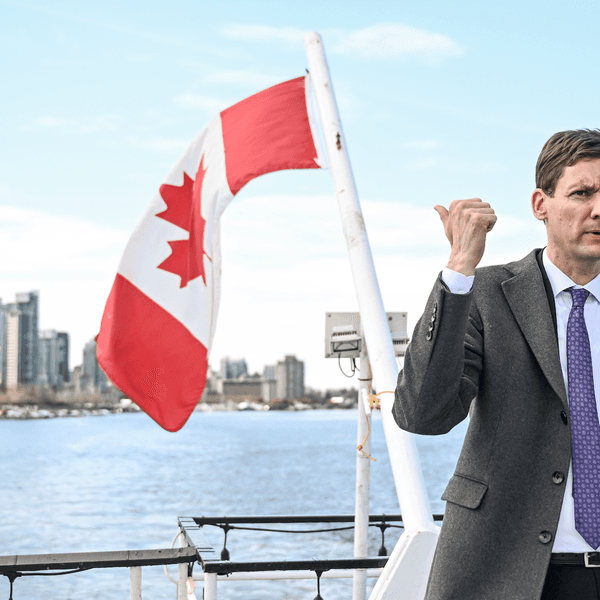Last Friday, Barack Obama did something no other politician ever has -- rejected a major fossil fuel project because of its impact on the climate. At the exact moment that the President was making the announcement, nearly 80 people were risking arrest as part of Climate Welcome, a four day sit-in outside of Prime Minister Justin Trudeau's residence calling for a freeze on tar sand expansion and a commitment to justice based clean energy economy. Cheers erupted as we learned not only that the President's rejection was because of the climate impacts of the pipeline, but that he also admitted something few politicians have been brave enough to do -- that we need to leave fossil fuels in the ground. Later that day, the same crowd heard the response from the Canadian government with a much different response.
Prime Minister Trudeau was "disappointed" in the decision. Our newly minted Minster of the Foreign Affairs, Stephane Dion, took the moment to express his support for the Energy East pipeline before the project had even completed its review at the National Energy Board. Dion's comments were even more striking given that only a few weeks ago Trudeau criticized his predecessor for being "a cheerleader instead of a referee" for pipeline projects and tar sands expansion. The gap between Obama's announcement and Trudeau's response is indicative of the fundamental choice that this government needs to make between the oil industry and real climate action.
Unfortunately, it's a choice that Justin Trudeau doesn't seem to understand yet. A choice marked by his government seeming to speak out of both sides of their mouth on climate change. On one side, our new Minister of the Environment and Climate Change, Catherine McKenna, seems to get that climate action needs to be based on science, recently tweeting that:
"Canada agrees the science is indisputable, and we recognize the need for urgent/greater action that is grounded in robust science"
On the other side, Minister Dion, at the same press conference where he expressed his support for the Energy East pipeline, said that he disagreed with the call for a freeze on tar sands expansion. The problem is that the indisputable science that Minister McKenna wants Canada to base its urgent and greater action in is clearly saying that Canada need to leave at least 85 per cent of tar sands in the ground if we're going to do our part of keeping global temperature rise below 2oC. That means freezing tar sands expansion and scrapping dangerous and unnecessary pipeline projects like Energy East.
Justin Trudeau has made it clear that he wants to grow the economy and protect the environment at the same time, but to do that, he needs to stand up to big oil. Rather than spending his days defending the merits of an economy built on the boom and bust cycles of 19th century technology, he needs to be bold. That means a commitment to a justice-based clean energy economy built for the 21st century because, frankly, it's 2015.



